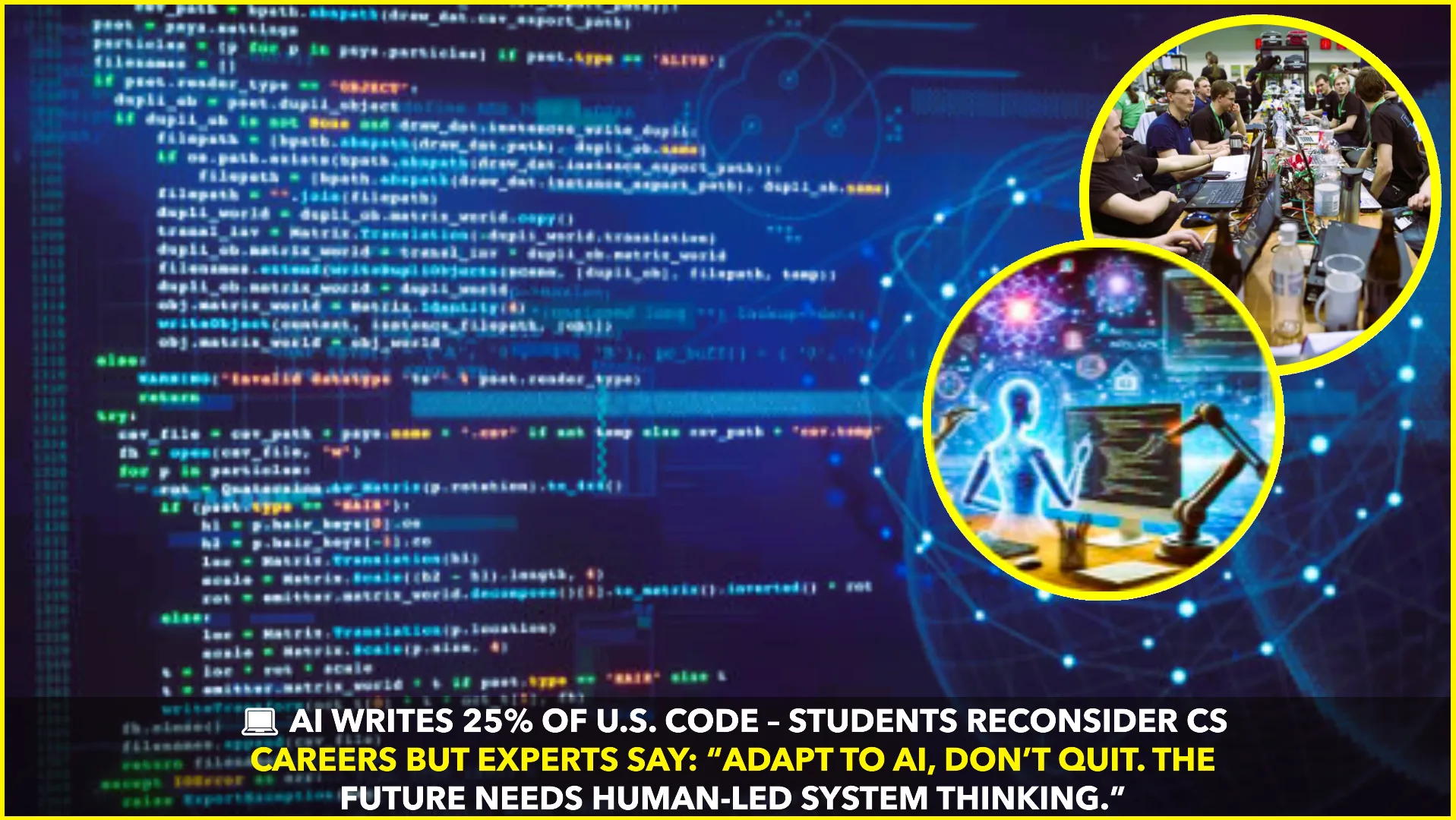Artificial intelligence has rapidly changed the software development landscape. According to a 2024 report by McKinsey & Company and corroborated by GitHub’s latest data, nearly 25% of all code in the United States is now generated by AI tools like GitHub Copilot, OpenAI Codex, and Amazon CodeWhisperer. While the rise of AI-assisted programming has brought greater efficiency to the industry, it’s also leading to growing anxiety among computer science students, with some reconsidering or even abandoning their chosen career paths.
At universities across the U.S., instructors are reporting a shift in classroom attitudes. “We’ve had students ask, ‘What’s the point of learning to code if AI can do it faster and better?’” said Dr. Carla Jensen, a professor at Stanford University. “It’s a valid concern, but also a misunderstanding of what coding will become in the age of AI.”
Several students have already dropped out, citing concerns about future job prospects. “I enrolled in computer science thinking I’d have a long-term career in software development,” said James Liu, a former student at NYU. “But seeing AI write hundreds of lines of clean code in seconds made me feel obsolete.”
However, experts argue that the situation isn’t as dire as it seems. According to a 2024 Stack Overflow Developer Survey, while AI tools are becoming more widespread, most developers still spend significant time debugging, integrating systems, and designing architecture—tasks where human judgment remains essential.
“AI is not replacing developers; it’s changing the nature of development,” said Emily Chang, a lead AI engineer at Microsoft. “Rather than seeing AI as a competitor, students should learn to see it as a co-pilot—an assistant that can boost productivity and reduce repetitive tasks.”
In fact, tech companies are increasingly looking for professionals who can leverage AI to enhance workflows, not just write raw code. Skills like prompt engineering, AI tool integration, and large-scale system design are becoming more valuable in the industry. Roles such as AI operations managers, product architects, and ethical AI analysts are emerging as new career paths for those with computer science backgrounds.
The education sector is responding to this shift. Top universities such as MIT, Carnegie Mellon, and UC Berkeley are now offering specialized courses that focus on AI-assisted development, prompt engineering, and responsible use of machine learning tools in software engineering. “The future belongs to those who can think critically, design robust systems, and use AI creatively,” noted Dr. Jensen.
The AI trend in code generation is also creating opportunities for students to build more impactful projects early in their careers. “AI can take care of boilerplate code and allow students to focus on innovation,” said Peter Zhao, a startup founder and MIT alum. “Students who adapt to this shift are going to have a competitive edge, not a disadvantage.”
Despite the uncertainties, the U.S. Bureau of Labor Statistics still projects strong growth in software development jobs through 2032. The key message from industry leaders and educators alike is not to abandon the field, but to evolve with it.
“Coding isn’t dead—it’s evolving,” said Chang. “We’re entering a new era where human creativity and AI efficiency must work together.”
Sources:
- McKinsey & Company Report, “The State of AI in 2024”
- GitHub Octoverse 2024
- Stack Overflow Developer Survey 2024
- U.S. Bureau of Labor Statistics (BLS.gov)
- Interviews with Stanford, MIT, and industry experts










